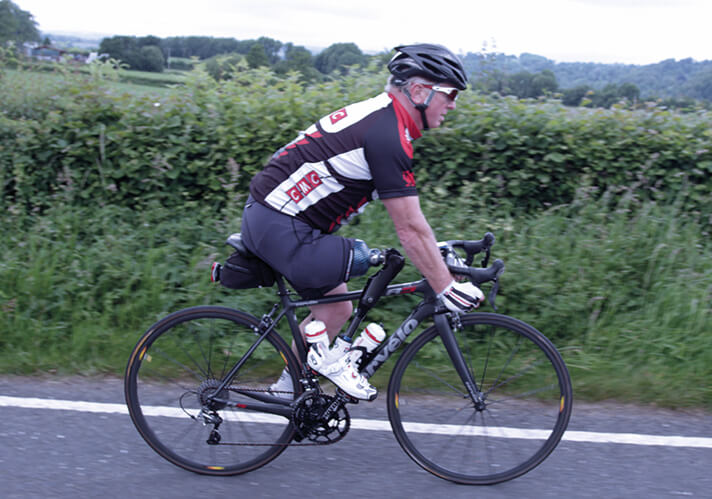Whether it’s on the track or the road, are you looking to get back on a bike and experience a fast paced thrill with plenty of social and fitness benefits?
If so, then para cycling is the perfect sport for you.
What’s this then?
Para cycling was first developed by cyclists with visual impairments who competed on tandem bicycles. Since then the sport has continued to grow, with road events for athletes with cerebral palsy and track cycling having become hugely popular Paralympic events.
Whether you want to race for glory or just cycle for fun in a team or individually, it’s a great sport to enjoy with friends and families.
Who can take part?
Para cycling is a fantastic sport for those with cerebral palsy, visual impairments and physical impairments.
Some riders want to get involved with the sport at a recreational level, or to ride to work or get around on a daily basis.
Others are inspired by the continued success of the Great British Cycling Team and have aspirations to compete in para cycling at an elite level.
Once you’ve tried para cycling the big question is whether you’re happy just riding for fun, fitness and friendship, or if you fancy being the next Sarah Storey or Jody Cundy and have your eyes firmly focused on glory.
What’s the aim of the sport?
If you do want to take up para cycling to compete against others then, like with many other disability sports, there is a classification system.
This determines how your disability affects your ability to ride and groups you with others who have a similar disability; this includes cyclists with cerebral palsy, amputees and the visually impaired.
This is done to ensure there’s a level playing field in front of you and leaves you to concentrate on practising when you can and performing well when it comes to race day.
Keep winning races and you never know where you might end up – did someone say Tokyo 2020?
What do I need to race?
Before you can cycle and feel that liberating pedal pushing pace, you need a bike that suits your needs. The type of bike will not just be dependent on your disability but whether you’ll be competing in competitions or just for fun.
A tandem bike is often used for riders with a visual impairment, a tricycle tends to suit someone with cerebral palsy, and those with impairments affecting both legs and a combination of their upper and lower limbs will use a hand cycle.
Once you have a bike sorted, make sure you have comfortable and fitted clothing and make sure you don’t start going through the gears until you’ve got your helmet safely on.
Where can I race?
There are plenty of indoor and outdoor venues throughout the UK to cycle including the much celebrated National Cycling Centre in Manchester.
Disability hubs have been launched in Manchester, Bath, Nottingham, York, Kent and Stoke to improve access to the sport and para cycling events take place throughout the year.
Looking slightly ahead, any rider who impresses at a disability hub would then progress on to the Paralympic Development Programme.
In addition to this there are beautiful roads up and down the country for riders who want to go out with their friends and family. It’s not about what you can’t do but what you can, and when it comes to para cycling the possibilities are as exciting as the scenery you’ll see on your bike.
Anything else I need to know?
British Cycling is always looking for keen volunteers to help at events and local clubs. Find out more here.
How do I find out more?
The UK British Cycling website is brilliant and has answers to any bike related queries you may have. They’re determined to get more and more disabled cyclists riding this year and are more than happy to help.


